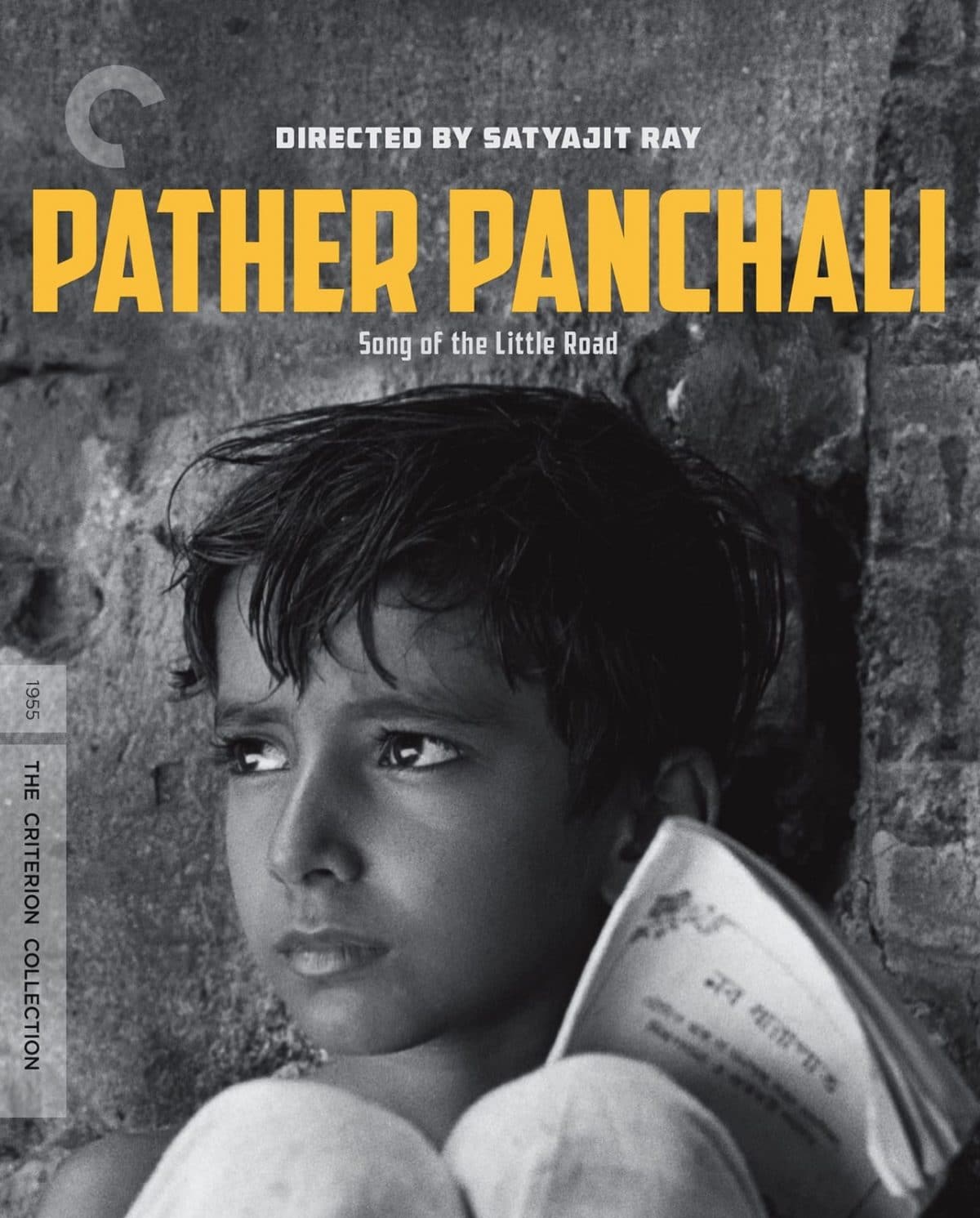
Written and Directed by: Satyajit Ray, based on the books Pather Panchali (Song of the Road) and Aparajito (The Unvanquished) by Bibhutibhushan Bandyopadhyay
How does Pather Panchali hit Blake Snyder’s story beats? Here is the Save the Cat!® beat sheet for the film:
Pather Panchali is one of the best films you probably haven’t seen.
A Rite of Passage with a unique spin: We aren’t just tracking one character’s passage, but rather his immediate family’s. This is part of the story’s genius. And the result brims with subtle, yet potent, emotional power bordering the poetic.
Filmed on a shoestring budget over several years, Satyajit Ray’s debut won 11 international prizes, including the Best Human Document Award at Cannes and launched a career in which he made 36 films.
This first film is an exploration of character, world, and story with no conventional plot in sight. But its focus on the push-pull between the struggles of poverty and the joys of adolescence allow Ray to play with time and emotion in ways most Hollywood films can’t or won’t. And it conveys, through a rambling narrative, the nature of growing up in a village—vignettes forming a tapestry full of life. The cinematic experience purifying for the soul.
I saw it recently, and I couldn’t help thinking of Blake, and all the conversations we had about the beats being found everywhere, even in foreign classics. I also couldn’t stop thinking about my father, who encouraged me to watch the film 20 years ago; I think he wanted me to glimpse a life similar to the one he experienced in Colombia as a child.
Well, better late than never.
SPOILERS AHEAD (not that knowing will dull any of this film’s impact).
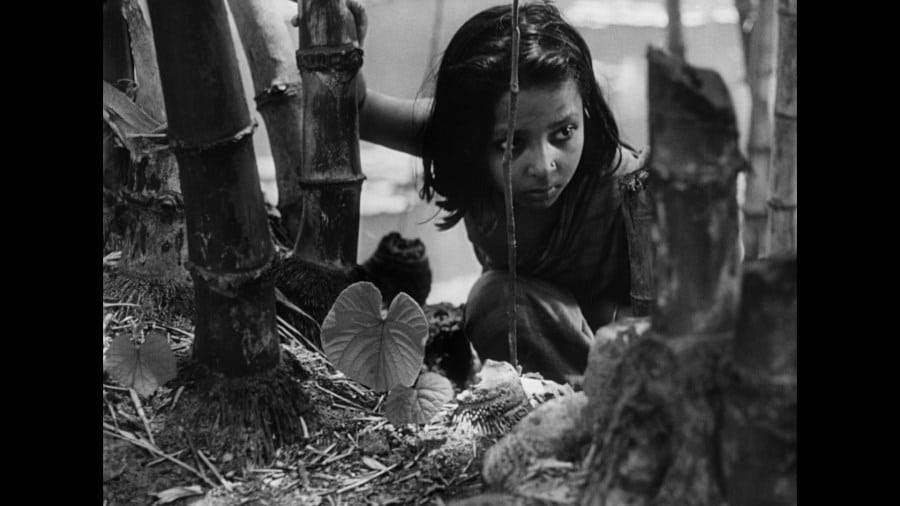
Opening Image: A wealthy Indian woman waters a plant, but her routine is interrupted when she sees a young girl stealing fruit from her orchard. The girl escapes down a dirt road. This is DURGA, Apu’s sister.
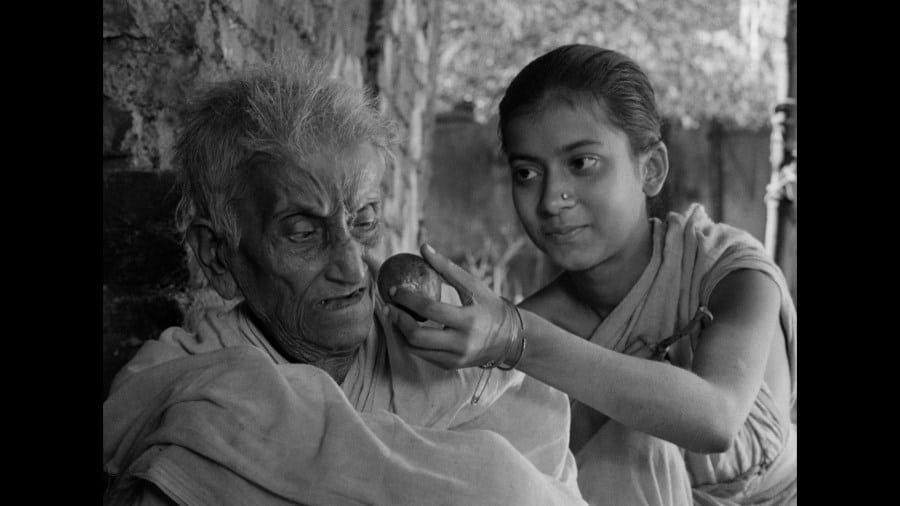
Set-Up: We glimpse life in a rural Bengali village through the eyes of one family, circa 1910. The three key characters we first meet are the women who will shape young Apu’s life: Durga, who stashes the stolen fruit and tends to kittens and the family’s rundown courtyard; ancient AUNTIE, full of wisdom and mischief, who eats the fruit; SARBAJAYA, who chides Durga for stealing, and blames Auntie for encouraging her. Of all the family, Sarbajaya bears the heaviest brunt of their poverty and second class role of their family in the poor village.
So many things need fixing, it’s hard to keep count.
Theme Stated: “Children learn what they are taught,” a wealthy neighbor says, criticizing Sarbajaya’s parenting. What will her children learn?
Catalyst: APU (the saga’s protagonist) is born. The impoverished family just added another member.
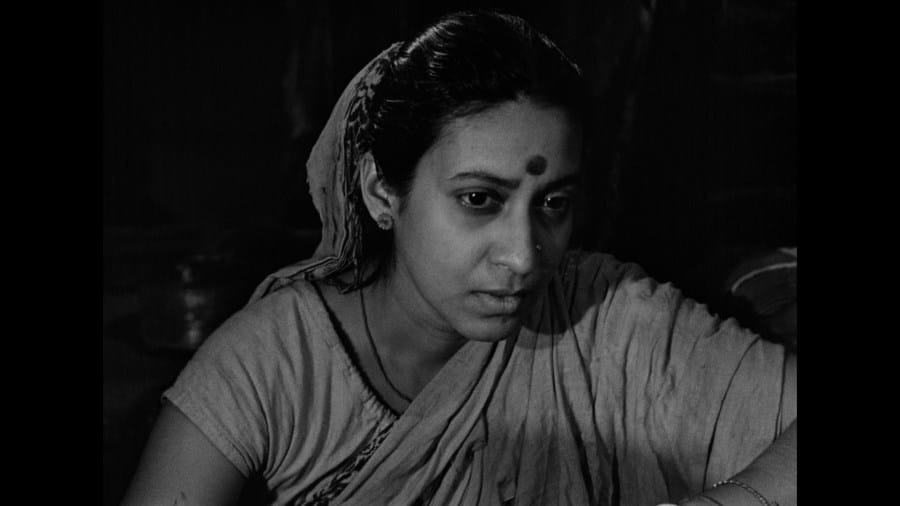
Debate: What kind of life will Apu have? Can the poor family survive? These questions are debated by Apu’s mother and HARIHAR, Apu’s father, as baby Apu lies in his crib. Harihar collects rent for a landowner, who took their orchard in a debt—the reason the family is in dire financial straits. But Harihar thinks his work as town priest will see the family through until he finishes his new play (oh, writers… we’re all the same). His wife remains unsure. Who cares about scholars in a village where moneylenders and orchard owners have all the power? But a family can dream… can’t they?
Break into Two: A few years later, Apu begins school. Class is taught by a local grocer, who interrupts lessons for business and local gossip. When one of Apu’s classmates is beaten for taking poor dictation, Apu begins to learn life can be unfair.
B Story: It’s Durga’s story, with whom we began this unusual, yet universal, tale. As Act Two unfolds, Durga is challenged by her mother to stop playing games and help with chores. We learn Durga often has fevers the family can’t afford to treat with anything other than basil tea.
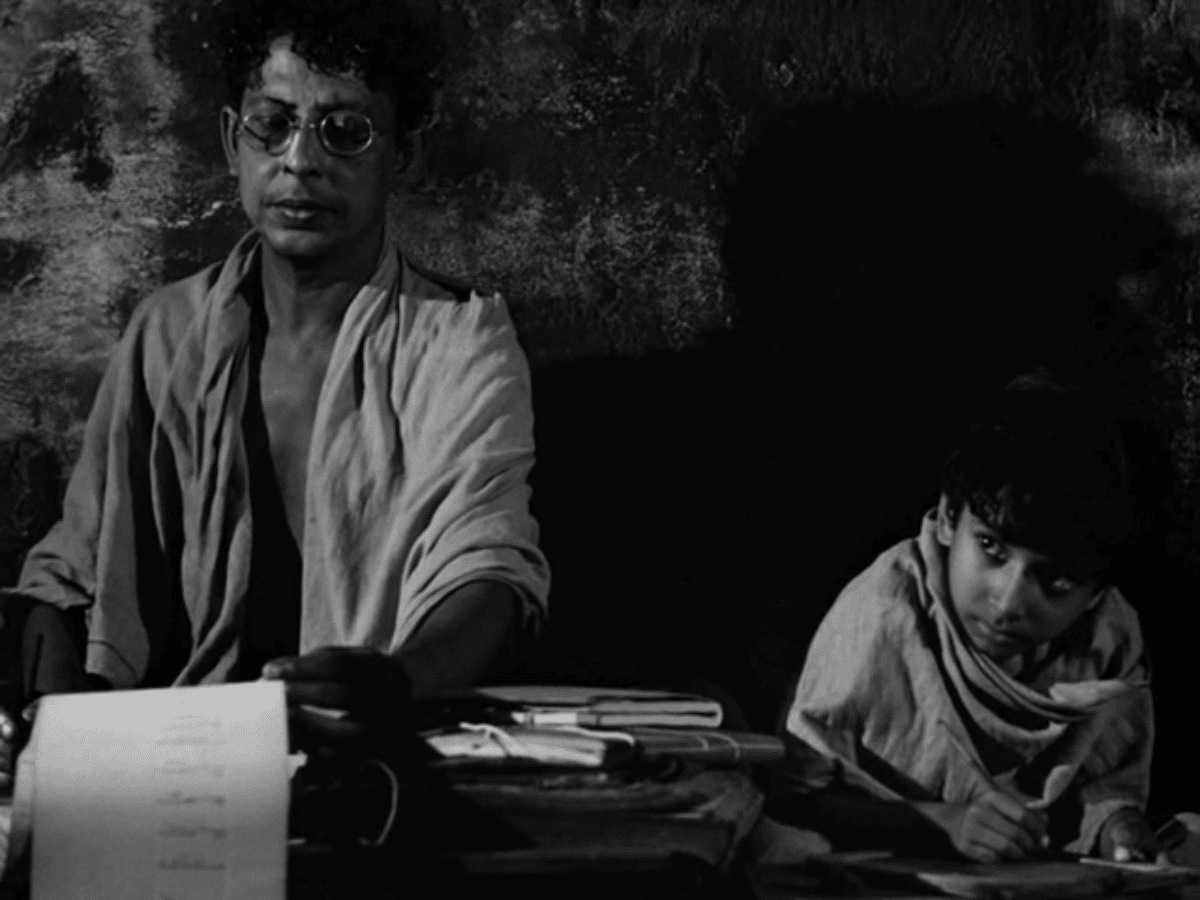
Fun and Games: Apu’s coming of age as part of a poor family. As Harihar said earlier, “There are good times and bad.” Sarbajaya argues over small resources like rice and herbs with Auntie, who just wants a new shawl to replace the tattered one she wears. Dad teaches Apu to write. A sweets seller comes by, but Apu and Durga can’t afford anything. So they follow the seller to a wealthy friend’s house (the same place Durga steals fruit from, which used to be their family’s orchard). Durga’s friend shares her sweets despite her mother’s protest.
Durga takes a liking to her friend’s beaded necklace. And soon after, she’s accused of stealing it. When Apu later asks if she took the necklace, Durga replies: “Of course not.” Meanwhile, Apu’s father has been waiting six months for backpay, but fears he’ll lose his job if he complains. Mom wants the family to move to Benares, the city, where she believes there will be more opportunity. But Apu’s father says they cannot leave his ancestral home.
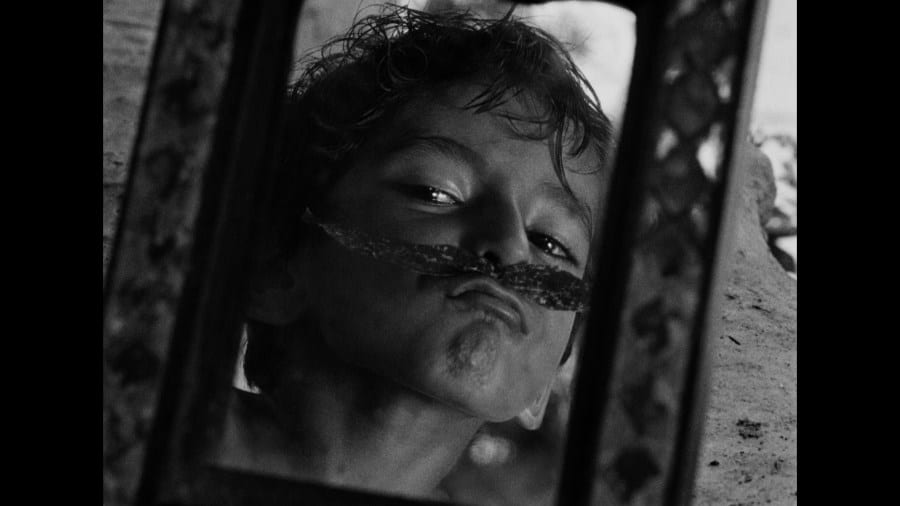
Midpoint: Apu and the family see a traveling troupe perform a play in the village (Party at the Midpoint). Apu becomes captivated by the spectacle. It’s Apu’s first glimpse of a world outside his village. He dreams of growing up to become a prince, a false victory. A and B Stories cross as Apu upsets Durga when she discovers he’s rummaged through her things to play dress-up. His sister chases and hits him, then calls him an idiot for thinking he can be a prince.
Bad Guys Close In: Sarbajaya becomes increasingly despondent about the family’s struggle, deep in debt and lacking options. She’s even too upset to notice when Auntie grows ill.
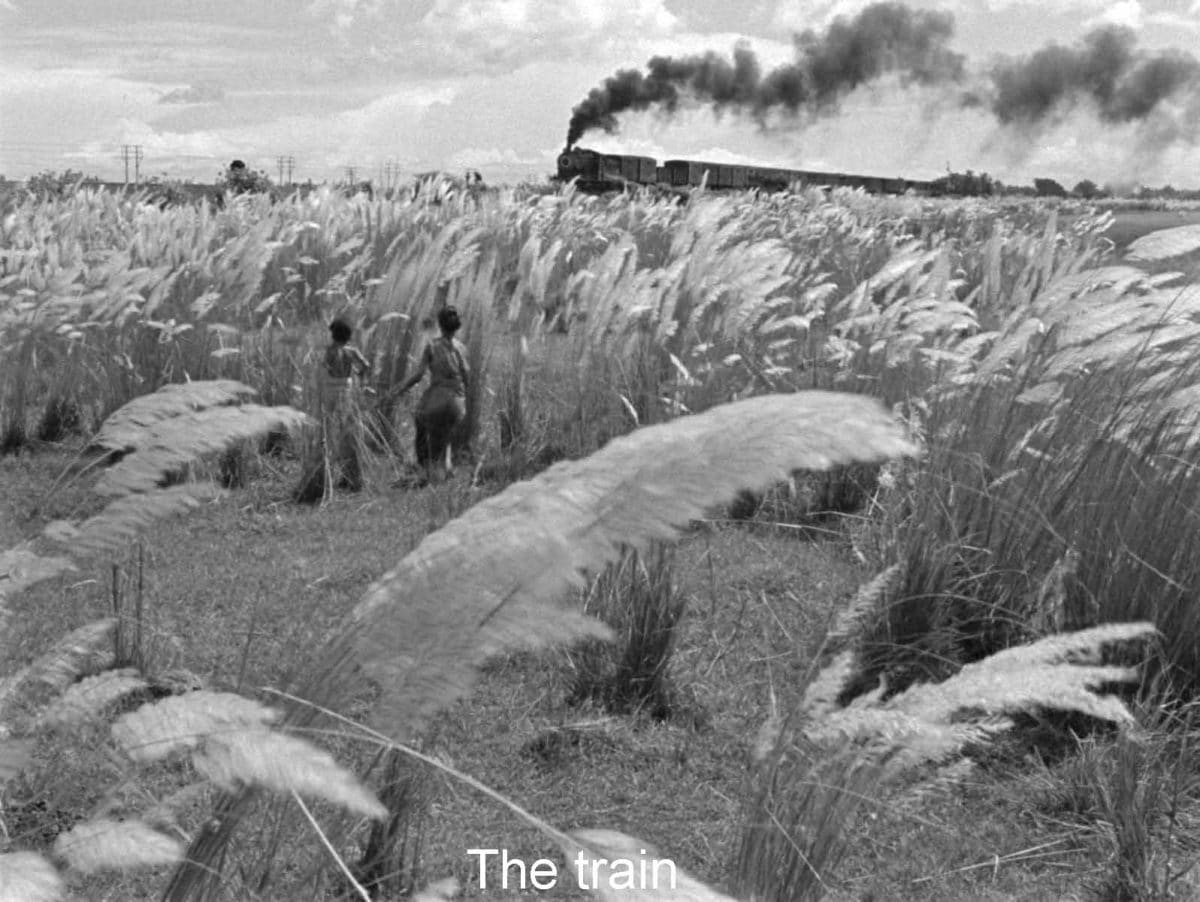
Meanwhile, Abu and Durga stray from home and encounter power-lines that seem almost menacing when cast against nature. Then a train chugs along past them, roaring black smoke into the sky.
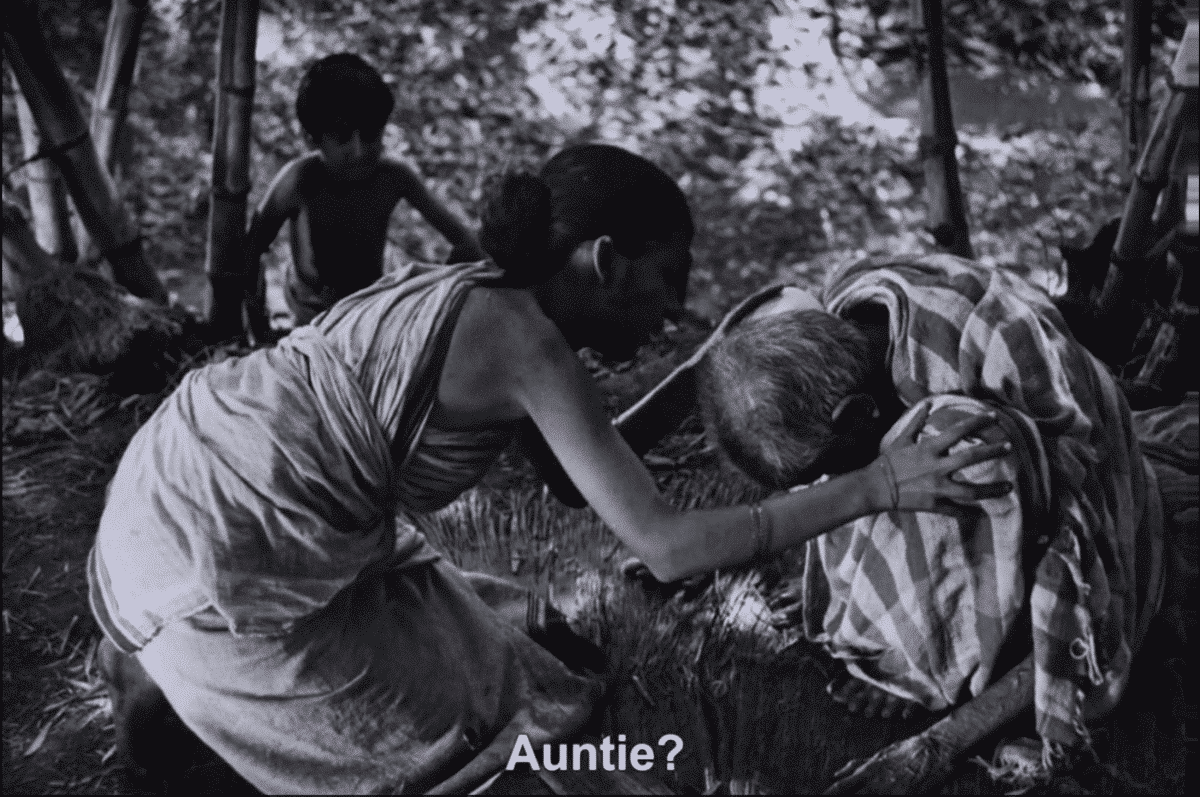
All Is Lost: On the way home, Apu and Durga find Auntie dead on the road. This whiff of death introduces Apu to the cruelest reality of life. But it’s a false defeat because life must go on.
Dark Night of the Soul: The family mourns. With no other choice, Harihar leaves the village in search of work, but promises to return soon with funds to repair their home. In his growing absence, Sarbajaya struggles to provide for the family, but is too proud and forlorn to ask neighbors for help.
Break into Three: After hearing a beggar sing, “What do I care for worldly wealth? Alms, good mother.” Sarbajaya makes a decision. She sells the family’s valuables (her brass wedding dishes) to feed the children.
Finale: Monsoon season arrives, storming the village. After playing in the early waters of a monsoon, Durga becomes ill. A doctor consoles Sarbajaya, saying the fever should recede so long as they keep Durga warm.
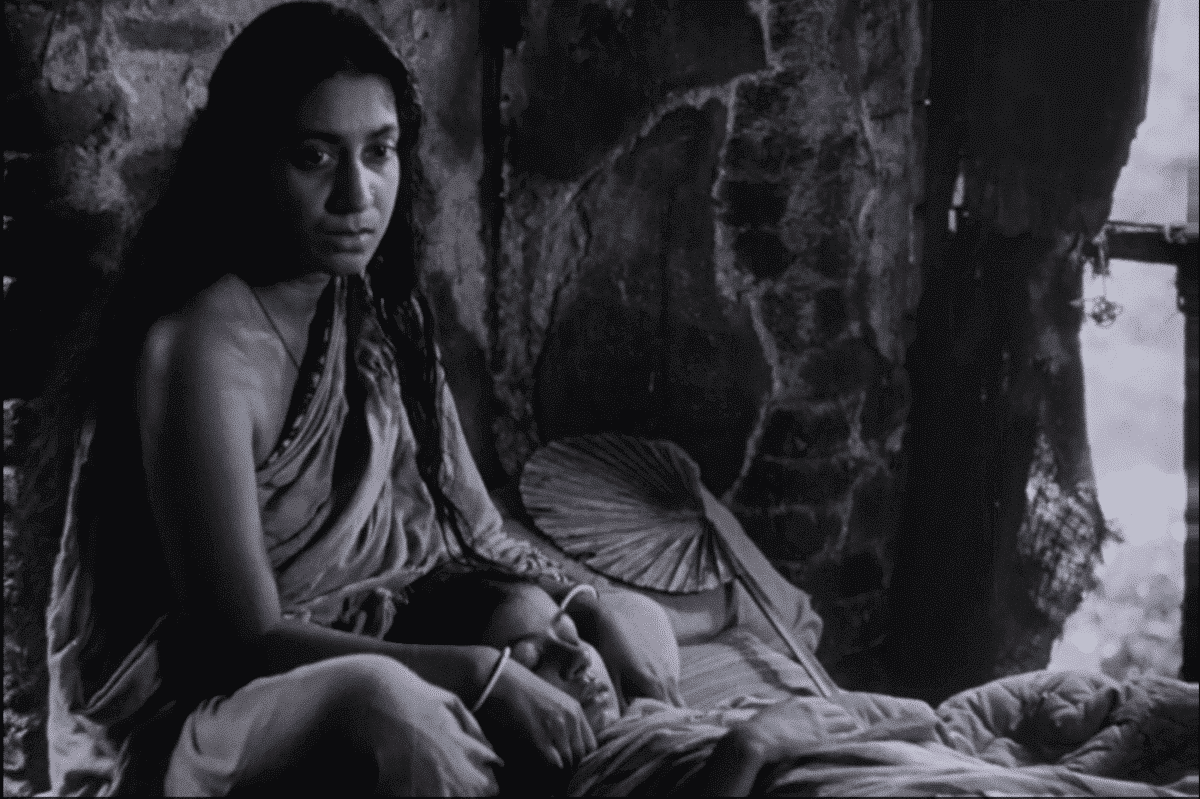
But in a high tower surprise, the weather worsens and their dilapidated home can’t protect them from the wind and cold. Durga dies in her mother’s arms. When Harihar returns, having made money for the family, he discovers his home in ruins and Sarbajaya reveals their daughter has died.
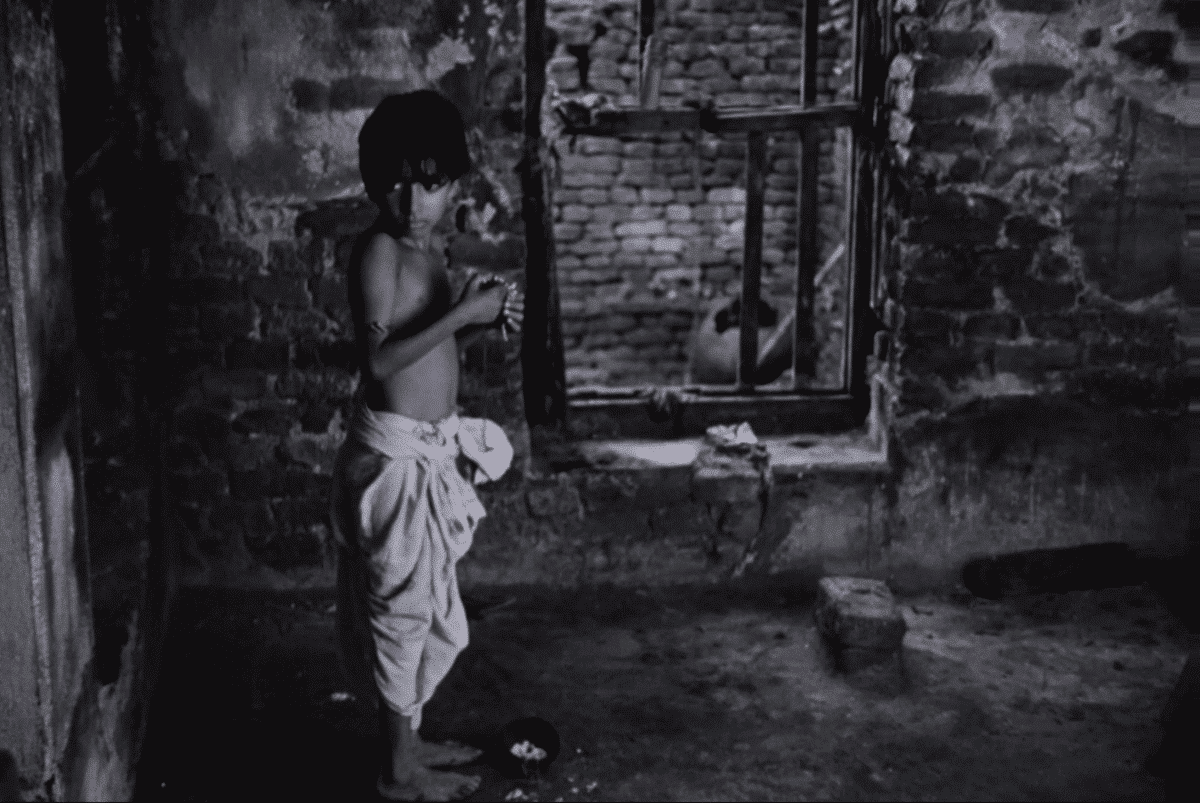
Soon after, while village elders try to convince Harihar to not move the family away, Apu helps his mother pack. In the process, Apu discovers the hidden beaded necklace. His sister had stolen it after all. Digging deep down, Apu makes his first adult choice. He tosses the stolen necklace into a pond, keeping his sister’s secret.
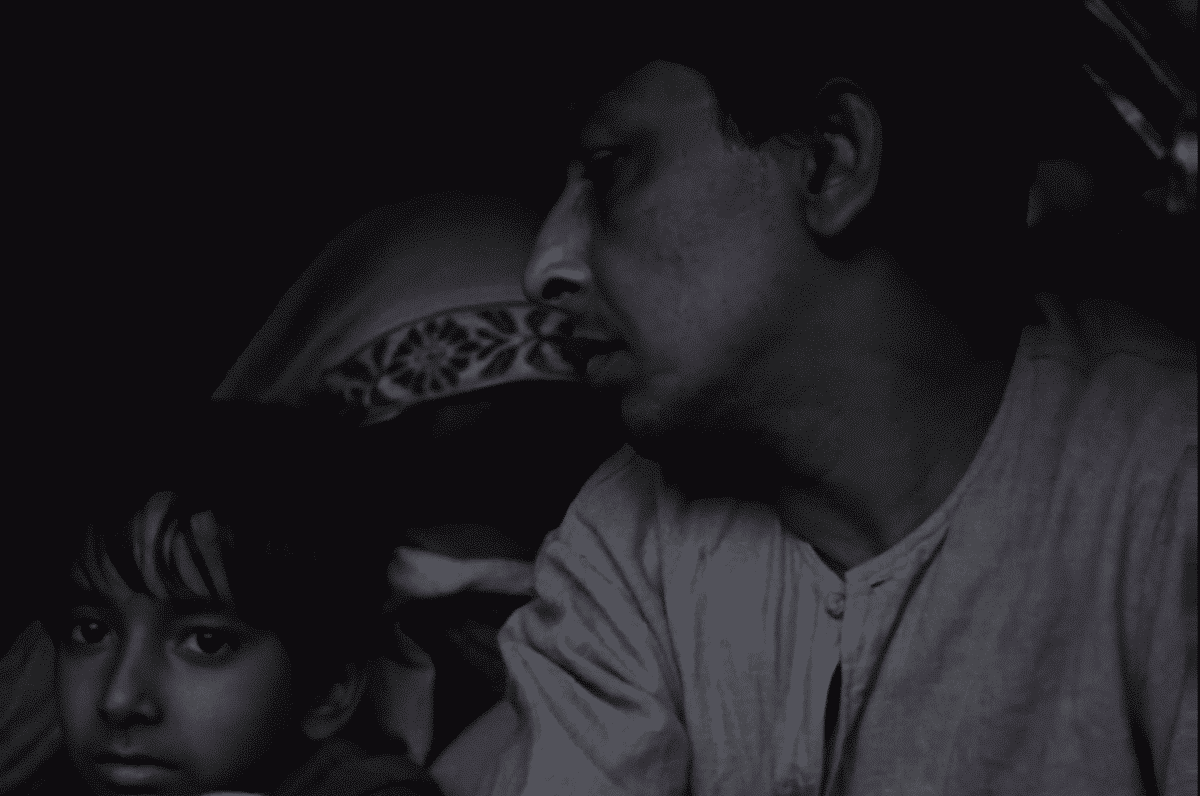
Final Image: Apu and his parents ride away from the village on an ox-cart. In a twist on the final acceptance beat of most ROP stories, Harihar looks at his wife and his son, and seems to find a bittersweet solace in what’s left of his family.
The film ends, but the story remains to be continued—because Pather Panchali is actually just the first part of one of the best film trilogies you probably haven’t seen.
Better late than never.
Mario Moreno
5 Comments
Leave a Reply Cancel reply
You must be logged in to post a comment.


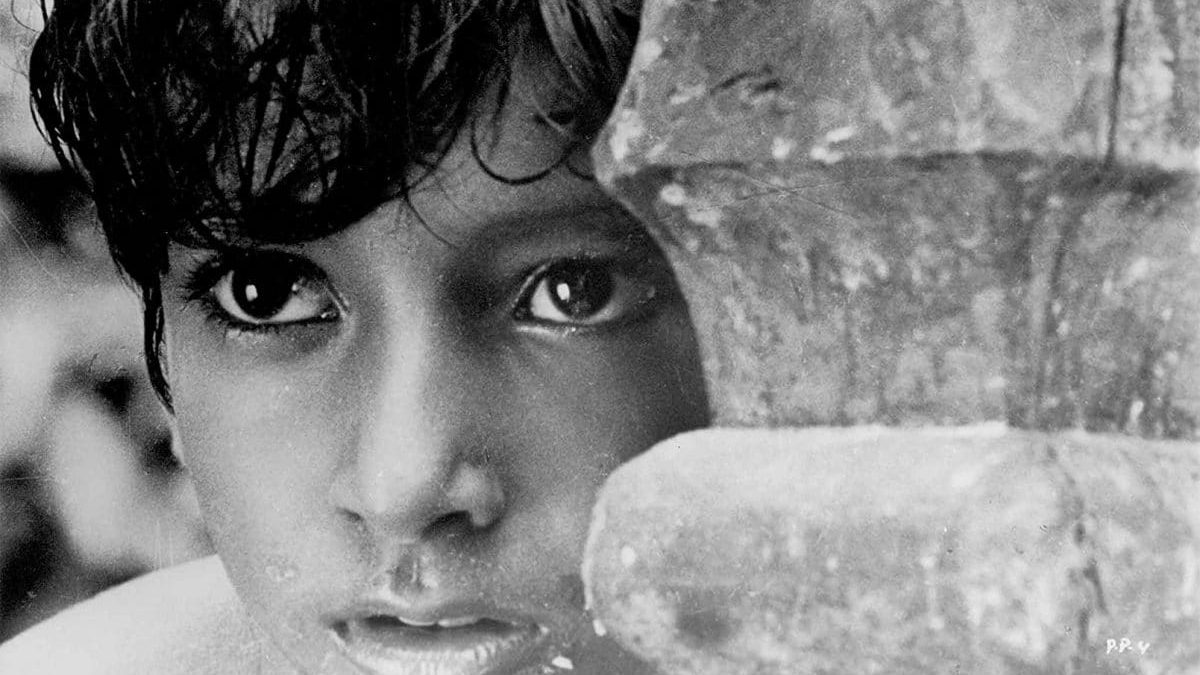







“Children learn what they are thought” – or is it “taught” – ?
Yikes! Thanks for catching that.
This is a powerful movie. I was moved by the story just by reading the beat sheet. It really pricks the heart.
What had the most profound impact on me was how in the Finale, Apu finds the necklace her sister stole, and he’s faced with a tough moral decision, even at his young and tender age. Tell the truth or honor his sister’s memory. Bravely, in my opinion, he chooses to keep his departed sister’s secret by getting rid of the necklace.
This Finale moment is a striking example of how the primal actions heroes take are what give a story the firepower to actually change the way we think and feel. On the surface, Apu committed the simple act of tossing the necklace into the pond. But internally, he committed a courageous act of protection–the protection of a loved one.
His endearing action begs the question, “What would we do to protect the ones we love?”
Geez. Never thought a movie like Pather Panchali could be moulded into a BS Beat Sheet. Interesting. Would have to go over again to dig more though. Thanks for sharing!
Thanks, Fareed. Happy to share it!